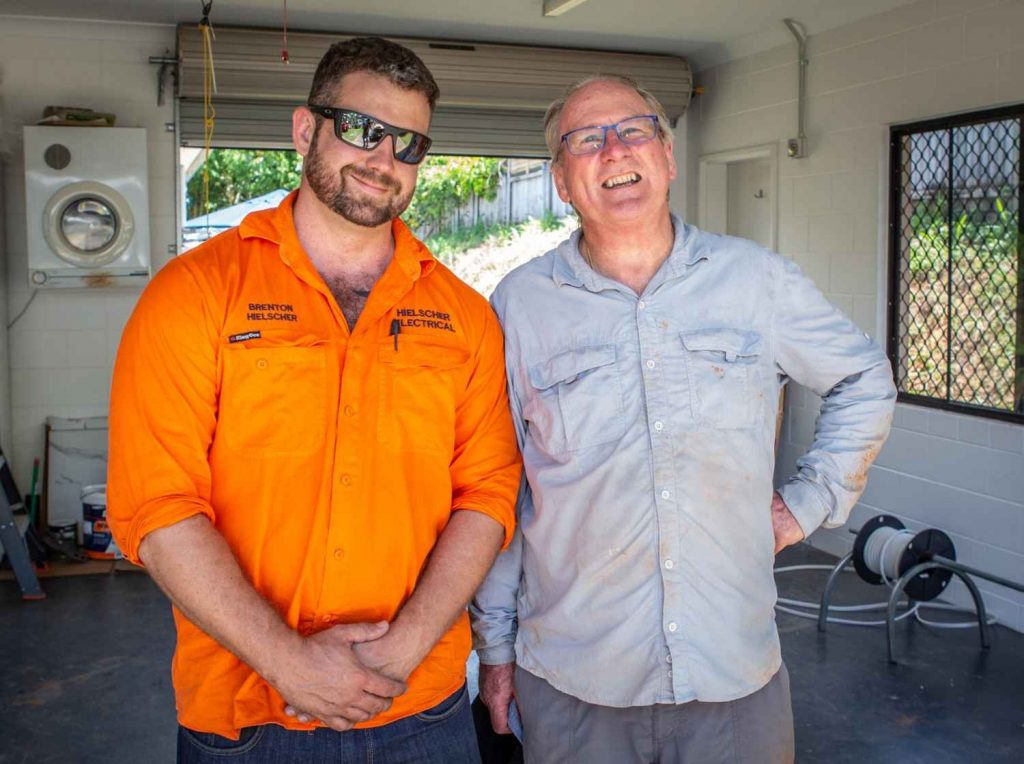On a humid afternoon in Cairns, Cassey leans against the railing of her rented veranda, looking up at the clear blue sky and thinking about her next electricity bill.
“We could do with the help,” she says, reflecting on the Queensland Government’s new plan to subsidise solar panels for rental properties. “Most home owners are now benefiting from solar, why not renters?”
For tenants like Cassey, the announcement of the Supercharged Solar for Renters program offers not just potential relief from mounting electricity costs but also a sense of inclusion in Australia’s renewable energy transition — a transition that, until now, has largely bypassed the rental market.
Historically, renters have been unable to access the benefits of rooftop solar, constrained by their lack of ownership and the reluctance of landlords to invest in systems that did not directly lower their own costs. This new initiative, backed by a $26 million commitment from the Queensland Government, represents a significant policy shift aimed at bridging that gap — empowering tenants to participate in the state’s clean energy future while offering landlords tangible incentives to upgrade their properties.
$26 Million Supercharged Solar for Renters Program
The Queensland Government has pledged $26 million over three years to assist landlords in installing solar on their rental properties, offering grants of up to $3,500 per eligible home. The program, part of a broader cost-of-living strategy promised by the Liberal National Party during the 2024 election campaign, is set to launch later this year.
Officials expect that by reducing reliance on the main grid, tenants could save as much as $700 annually on their electricity bills. For many, these savings could make a real difference at a time when both rental prices and utility costs are rising sharply.
The initiative aims to tackle a long-standing disparity: while one in three Queensland homes boasts rooftop solar, renters have traditionally been excluded, with landlords reluctant to invest in energy upgrades from which they did not directly benefit.
Premier David Crisafulli, who took office following the LNP’s election victory in October, said the rebate would deliver practical, long-term cost of living relief to thousands of Queensland renters according to One Step Off The Grid.
“At a time when Queenslanders are struggling to keep a roof over their head and pay the bills, this delivers real relief for one of the big kitchen table bills.”
Learning from Past Attempts
This is not Queensland’s first attempt at addressing solar access for renters. A 2019 pilot program under the former Labor government demonstrated that, while there is appetite for such schemes, careful design is crucial. That trial, requiring mutual agreement between landlords and tenants and allowing modest rent increases, achieved moderate uptake but ultimately failed to deliver widespread change.
This time, government officials say they are determined to improve the program’s structure, consulting with tenancy, property, and consumer groups to ensure safeguards are in place. The success of the new scheme will largely depend on its ability to balance the interests of landlords — who must agree to install the systems — with the needs of tenants, who must see real financial benefits without facing higher rents.
Solar in the Sunshine State: An Untapped Opportunity
Queensland’s abundant sunlight has made it a national leader in rooftop solar adoption among homeowners. However, the rental sector remains a significant untapped market. Industry experts believe unlocking this potential could make a serious contribution to both household energy affordability and the state’s broader emissions reduction targets.
Solar industry leaders argue that the benefits extend beyond financial savings. Increasing solar access for renters also promotes energy independence, reduces strain on the grid, and supports local clean energy jobs — especially in regional centres like Cairns, Townsville, and Rockhampton.
Cairns Local Solar Installers Preparing for a Surge
In Far North Queensland, businesses are preparing for the surge in demand the program is expected to bring. Hielscher Electrical and Solar Cairns, a well-established solar and electrical company based in Cairns, is among those welcoming the initiative.
Brenton Hielscher, Managing Director of Hielscher Electrical, says the program is a “timely boost” not only for renters but for the local solar industry as well.
“We’ve worked with both homeowners and landlords over the years, and there’s always been a gap when it came to making solar available for tenants,” Mr Hielscher said.
“This rebate makes it much more viable for property owners to invest in solar, knowing there’s genuine support from the government.”
According to Hielscher, property investors in the Cairns region are already showing strong interest.
“We’re seeing enquiries pick up rapidly,” he said.
“Landlords are realising that solar not only makes their properties more attractive to tenants but also adds long-term value to their investments. It’s a win-win.”
Hielscher Electrical is positioning itself to assist landlords through every step of the process — from system design and installation to guiding clients through the rebate application. The company stresses the importance of professional installation to ensure systems meet both government standards and energy performance expectations.

Expanding the Vision for Energy Equity
While the solar rebate is an important step forward, energy advocates argue it should form part of a larger framework of reforms. Calls are growing for Queensland to follow the lead of Victoria and the ACT by introducing minimum energy efficiency standards for rental homes, mandating measures such as ceiling insulation, fixed heaters, and modern, efficient air conditioning systems.
Such reforms could amplify the impact of solar uptake, ensuring that tenants not only benefit from cheaper electricity during the day but also enjoy homes that are cheaper to heat and cool year-round.
Industry voices also suggest future expansions of the scheme to include battery storage incentives, allowing households to store excess solar energy for use at night — particularly valuable in tropical climates like Cairns where air conditioning remains a major driver of power consumption after dark.
Looking Ahead
As Queensland prepares to launch its solar rebate for rental properties, landlords and tenants alike are weighing up the opportunities. For renters struggling with high power bills, the chance to harness solar energy offers meaningful relief. For landlords, the prospect of adding value to properties and improving tenant satisfaction is equally compelling.
The success of the program, however, will hinge on its implementation — including protections to ensure that tenants are the true beneficiaries of the initiative.
For property owners in Cairns and across the state who are ready to take advantage of the new rebate, businesses like Hielscher Electrical are ready to help navigate the process. By ensuring installations meet the highest standards and guiding clients through rebate applications, local providers will play a critical role in the solar future Queensland is aiming to deliver.
Landlords and tenants in Queensland wishing to learn more about the solar rebate or organise a solar quote can start the process for the Queensland cost of living scheme now and check eligibility for the QLD Solar Rebate for Rental Homes.


